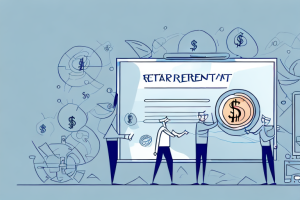Retirement age is a topic that often brings with it a myriad of questions and considerations. Should you retire early and enjoy the freedom and leisure that comes with it? Or should you wait a few more years, potentially increasing your retirement savings and social security benefits? The decision between retiring at 62 or 67 is a personal one, influenced by multiple factors. In this article, we will explore the various aspects of this retirement age dilemma, helping you make an informed decision that aligns with your goals and aspirations.
Understanding the Retirement Age Dilemma
Before delving into the specifics, let us first understand the retirement age dilemma. On one hand, retiring at 62 allows individuals to exit the workforce earlier, freeing up time for hobbies, travel, or spending time with loved ones. However, retiring at 62 also means relying on a reduced social security benefit and potentially lower overall retirement savings. On the other hand, retiring at 67 offers the potential for increased financial stability, as social security benefits typically increase with age. However, delaying retirement means more years in the workforce and potentially missing out on some of the precious moments of retirement.
Factors to Consider When Choosing Your Retirement Age
When deciding whether to retire at 62 or 67, it is crucial to consider several factors that can significantly impact your retirement journey. One factor to assess is your current financial situation. Do you have enough retirement savings to support yourself if you choose to retire early? Are you eligible for any pension plans or have other sources of income? Evaluating your financial readiness is essential in making an informed decision.
Another factor to consider is your health. Retiring early may provide you with additional time to focus on your well-being and address any health concerns. However, if your health is currently stable and you enjoy your work, continuing to work until 67 may be a valid option for you.
Additionally, your personal goals and aspirations should play a significant role in determining your retirement age. What do you plan to do during your retirement? Are there specific activities, hobbies, or goals you want to pursue? Understanding what brings you joy and fulfillment can help guide your decision-making process.
Pros and Cons of Retiring at 62
Retiring at 62 offers several advantages. Firstly, you gain more free time to engage in activities you enjoy. Whether it’s traveling, spending time with family, or pursuing personal projects, retiring early allows for a greater sense of freedom and leisure. Moreover, if you have been feeling burnt out or dissatisfied in your career, retiring at 62 can provide much-needed relief.
However, it’s essential to acknowledge the potential drawbacks of retiring at 62. One significant drawback is the reduction in social security benefits. By retiring early, you may receive a reduced monthly benefit, potentially affecting your financial stability in retirement. Additionally, retiring at 62 means relying more heavily on your personal savings, which may need to stretch for a longer retirement period.
The Benefits and Drawbacks of Retiring at 67
Retiring at 67 has its own set of advantages and disadvantages. One significant benefit of waiting until 67 is the potential for increased social security benefits. By delaying retirement, you can maximize your monthly income from social security, which can significantly contribute to your overall financial security.
Another advantage of retiring at 67 is the opportunity for continued employment and income. If you enjoy your work or feel financially unprepared to retire at 62, working until 67 allows you to accumulate more savings and reduce the reliance on your personal retirement funds.
Nevertheless, retiring at 67 may also come with some drawbacks. Delaying retirement means spending more years in the workforce, potentially experiencing higher levels of stress and burnout. Additionally, health concerns may arise as you age, which could impact your ability to enjoy your retirement fully.
Financial Implications: How Retirement Age Affects Your Savings
One crucial aspect of deciding between retiring at 62 or 67 is the financial implications of your choice. Retiring early at 62 means utilizing your retirement savings for a potentially longer retirement period. Before making the decision to retire early, assess whether your savings are sufficient to sustain your desired lifestyle and cover any unexpected expenses that may arise.
Retiring at 67, on the other hand, allows you to continue contributing to your retirement savings for a few more years. This additional time can significantly impact the growth of your funds and potentially provide you with a more comfortable financial cushion during retirement.
Social Security: How Retirement Age Influences Your Benefits
Understanding how your chosen retirement age affects your social security benefits is crucial when making the retirement age decision. Social security benefits are calculated based on your lifetime earnings, and the age at which you choose to start receiving benefits can significantly impact the amount you receive each month.
If you opt to retire at 62, your social security benefits will likely be reduced. The reduction is calculated based on the number of months between your 62nd birthday and your full retirement age. The full retirement age varies depending on the year you were born. For those born between 1943 and 1954, the full retirement age is 66.
On the other hand, if you choose to delay retirement until 67, you may be eligible for increased benefits. Delaying retirement allows for delayed retirement credits, which can add up to 8% per year to your benefit amount.
Health Considerations: Retiring Early vs. Retiring Later
When deciding on your retirement age, it is crucial to consider your health and well-being. Retiring at 62 provides more time to focus on self-care and address any underlying health concerns. It allows for a potentially more relaxed and stress-free retirement period.
However, if you are currently in good health and enjoy your work, delaying retirement until 67 may be a viable option. Continuing to work can provide a sense of purpose and mental stimulation, potentially contributing to overall well-being.
Adjusting Your Retirement Strategy Based on Your Chosen Age
Once you have made the decision regarding your retirement age, it is important to adjust your retirement strategy accordingly. If you choose to retire at 62, consider working with a financial planner to evaluate your savings, adjust your budget, and determine a sustainable withdrawal strategy that will support your chosen retirement lifestyle.
If you decide to retire at 67, focus on maximizing your retirement savings during the additional years in your career. Explore options such as contributing to employer-sponsored retirement plans, individual retirement accounts (IRAs), or other investment vehicles to further boost your retirement funds.
Lifestyle Factors: The Impact of Retirement Age on Leisure and Activities
Retirement age can significantly impact your lifestyle and the activities you are able to enjoy. Retiring at 62 offers an earlier opportunity to pursue hobbies, travel, or spend time with loved ones. It provides a sense of freedom and flexibility that can enhance your overall well-being.
Alternatively, retiring at 67 may limit the amount of free time available for certain activities. However, having more years in the workforce can contribute to increased financial stability, allowing you to engage in meaningful experiences during your retirement.
Work-Life Balance: Weighing the Trade-Offs of Early or Late Retirement
When making the retirement age decision, it is important to consider the trade-offs between work and leisure. Retiring at 62 provides an opportunity to focus on personal interests and well-being outside of work. It can lead to a better work-life balance and a potentially more enjoyable retirement period.
However, early retirement can also have financial implications. It may require more careful budgeting and potentially downsizing certain lifestyle aspects to maintain financial stability. Additionally, leaving the workforce earlier means potentially missing out on career advancements or opportunities for professional growth.
Planning Ahead: Tips for Preparing for Retirement at Different Ages
Regardless of the retirement age you choose, planning ahead is crucial to ensure a smooth transition into retirement. If you opt to retire at 62, start by assessing your current financial situation and creating a budget that accounts for your reduced income. Consider consulting a financial planner to evaluate your retirement savings, assess your future income sources, and determine the best strategies to minimize financial stress.
If you decide to retire at 67, take advantage of the additional years in the workforce to maximize your retirement savings. Consider exploring retirement calculators to estimate your desired retirement income and determine the savings rate required to achieve your goals. Creating a retirement roadmap can help you stay on track and make any necessary adjustments along the way.
Exploring Alternative Options: Semi-Retirement and Phased Retirement
Retirement does not always have to be an all-or-nothing decision. Exploring alternative options such as semi-retirement or phased retirement can provide a middle ground that combines work and leisure.
Semi-retirement allows you to scale back on your work hours while continuing to earn income and contribute to your retirement savings. This option provides a reduced level of stress and increased flexibility, allowing for a smoother transition into full retirement in the future.
Phased retirement involves gradually reducing your work hours over a predetermined period. It allows individuals to maintain a connection to the workforce while gradually adjusting to a retired lifestyle. Phased retirement offers a sense of purpose and can be financially beneficial for those who prefer a slower transition out of the workforce.
Career Considerations: How Your Job Can Influence Your Retirement Decision
Your career can significantly influence your retirement decision. Certain professions may have physical demands that make retiring at 62 more appealing. On the other hand, if your work brings you joy and fulfillment, continuing to work until 67 may be a valid choice.
Additionally, consider the financial implications of leaving your job. Does your employer offer a pension plan or other retirement benefits? Are there any penalties or restrictions associated with early retirement? Understanding these career-related factors is crucial in making an informed decision.
Longevity Risk: Factoring in Life Expectancy When Deciding on a Retirement Age
Life expectancy is an important consideration when choosing your retirement age. While none of us can predict the future, understanding your anticipated life expectancy can help ensure you plan accordingly.
If you have a family history of longevity or enjoy excellent health, retiring at 62 may still provide you with several decades of retirement to enjoy. However, if you have health concerns or a family history of shorter lifespans, delaying retirement until 67 may be a more favorable choice.
Evaluating Personal Goals and Aspirations in Relation to Retirement Timing
Retirement is a time to pursue personal goals and aspirations. When deciding on your retirement age, take the time to evaluate your personal aspirations. What do you hope to achieve during your retirement? Are there specific experiences or milestones you wish to accomplish? Consider how your chosen retirement age aligns with these personal goals and aspirations to make the decision that best serves your desires and ambitions.
Seeking Professional Advice: Consulting a Financial Planner or Retirement Specialist
Deciding between retiring at 62 or 67 is not a decision to be taken lightly. It is highly beneficial to seek professional advice from a financial planner or retirement specialist who can guide you through the decision-making process. These professionals have the expertise and knowledge to assess your unique situation, provide personalized recommendations, and help you navigate the complexities of retirement planning.
Case Studies: Real-Life Examples of Individuals Who Retired at Different Ages
To further aid in your decision-making process, consider exploring real-life case studies of individuals who retired at different ages. These case studies can provide invaluable insights into the experiences, challenges, and benefits of retiring at 62 or 67. Hearing firsthand accounts can help you gain a deeper understanding of the potential impact your chosen retirement age may have on various aspects of your life.
Finding the Right Balance Between Financial Stability and Enjoying Your Golden Years
Ultimately, the decision between retiring at 62 or 67 requires finding the right balance between financial stability and enjoying your golden years. Consider your financial situation, health, personal goals, and aspirations when making this decision. Assess the advantages and drawbacks of each retirement age and strive to create a retirement plan that aligns with your desires for a fulfilling and secure retirement.
Making an Informed Decision: Weighing the Various Factors When Choosing Your Retirement Age
Retirement age is a significant decision that requires thoughtful consideration. It is essential to weigh all the various factors discussed above and consider how each element aligns with your unique circumstances and aspirations. By carefully assessing the financial implications, social security implications, health considerations, and personal goals, you can make an informed decision that sets you on a path to enjoy a satisfying and well-prepared retirement, whether you choose 62 or 67 as your retirement age.



